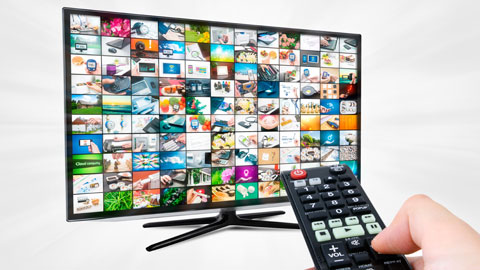UAB to organise accessible television workshop
The Smart Accessibility on Connected TV workshop will take place on 18 March at the Residència d’Investigadors de Barcelona. It will set down the bases for the exchange of good practices in the field of accessibility services.

The workshop will take place in a historical building housing the residence hall for researcher in Barcelona, located at Carrer Hospital 64. Organised by Pilar Orero, from the Department of Translation and Interpreting and East Asian Studies, and by ITU consultant Jaroslaw Ponder, the workshop will set down the bases for the exchange of good practices in the field of accessibility services, while also emphasising the ICT accessibility policy report model; and practical solutions for television channels to provide access services for the disabled. International standards for television will be presented and debated, as will legal, political and legislative aspects.
Members participating in the workshop will be Jaroslaw Ponder, Coordinator for European of the ITU Telecommunication Development Bureau; Harald Trettenbrein, Head of Unit, Directorate-General for Communications Networks, Content and Technology. Unit G1 Converging Media & Content of the European Commission; Jordi Sellas i Ferrés, Director, Direcció General de Creació i Empreses Culturals, Generalitat de Catalunya; and members of the UN, Digital Europe, and many European television channels.
Guaranteeing TV access to people with disabilities
One of the objectives of the leaders participating in the World Summit on the Information Society of 2003 and 2005 in Geneva and Tunisia, was to guarantee access to television services to all Europeans. Television is an important tool when boosting national identity, given that it offers local contents and informs the population; something which is particularly critical in cases of emergences.
For the workshop organisers, television programmes are also the main source of news and information for population segments with lower education levels, some of which are people with disabilities. The change from analogue to digital television is an ideal opportunity to take the necessary measures to ensure accessible television is available to everybody.
More information:
Website of the workshop